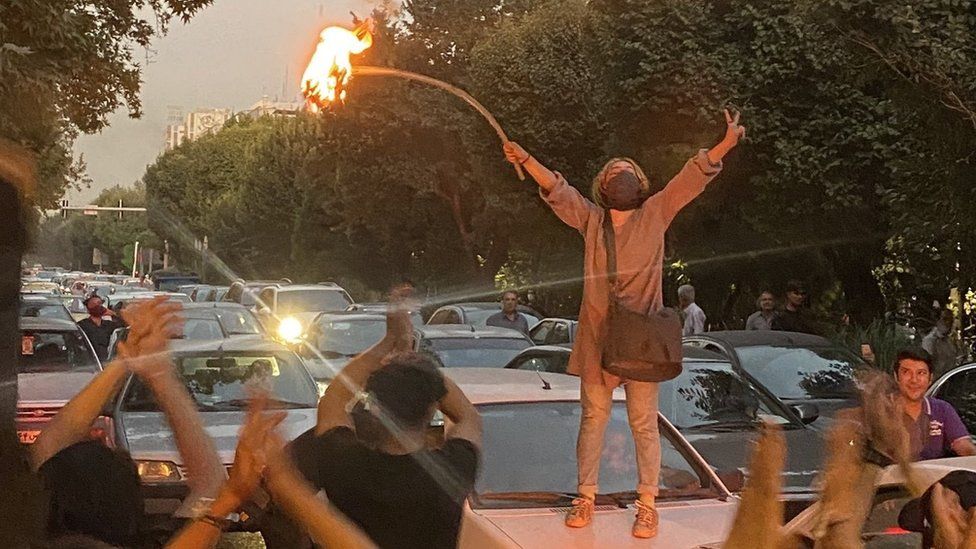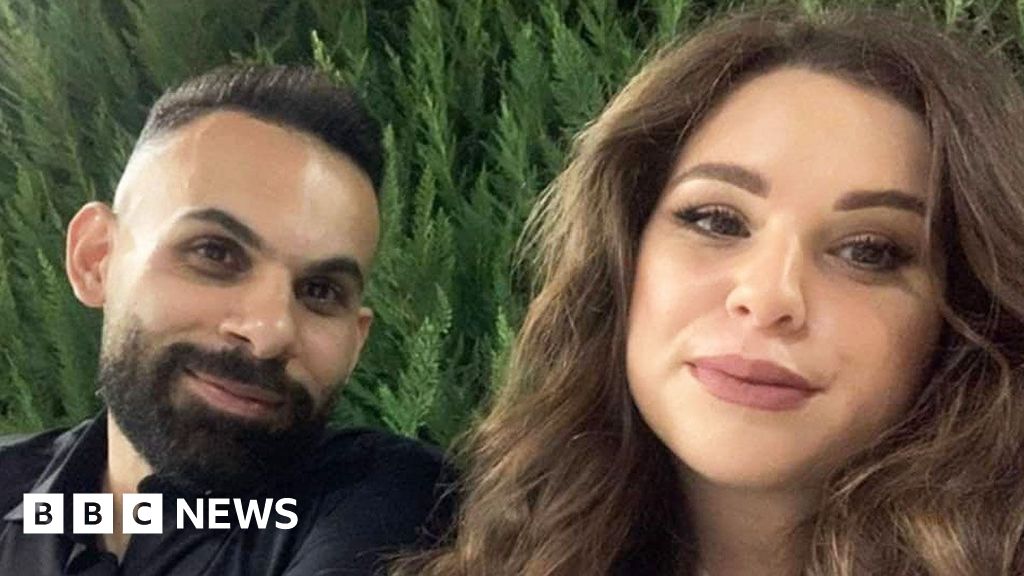ARTICLE AD BOX
By David Gritten
BBC News
 Image source, Twitter
Image source, Twitter
A woman set fire to her headscarf during a protest in Tehran on Monday
The UN has expressed alarm at Iranian authorities' response to protests sparked by the death in custody of a woman detained for breaking hijab laws.
Human rights groups said three people were killed on Monday as security forces opened fire at men, women and children who took to the streets of Kurdistan province for a fourth day.
Protests also took place in Tehran.
The UN urged Iran's leaders to allow peaceful demonstrations and launch an impartial probe into the woman's death.
Mahsa Amini, a 22-year-old ethnic Kurd from the western city of Saqez, died in hospital on Friday after spending three days in a coma.
She was with her brother in Tehran on Tuesday when she was arrested by morality police, who accused her of breaking the law requiring women to cover their hair with a hijab, or headscarf, and their arms and legs with loose clothing. She fell into a coma shortly after collapsing at a detention centre.
Acting UN High Commissioner for Human Rights Nada Al-Nashif said there were reports that Ms Amini was beaten on the head with a baton by morality police officers and that her head was banged against one of their vehicles.
The police have denied that she was mistreated and said she suffered "sudden heart failure". But her family has said she was fit and healthy.
Image source, Mahsa Amini family
Image caption,The acting UN rights chief called for Mahsa Amini's family to get "access to justice and truth"
"Mahsa Amini's tragic death and allegations of torture and ill-treatment must be promptly, impartially and effectively investigated by an independent competent authority, that ensures, in particular, that her family has access to justice and truth," Ms Al-Nashif said.
She noted that the UN had received "numerous, and verified, videos of violent treatment of women" as morality police expanded their street patrols in recent months to crack down on those perceived to be wearing "loose hijab".
"The authorities must stop targeting, harassing, and detaining women who do not abide by the hijab rules," she added, calling for their repeal.
An aide to Iran's Supreme Leader Ayatollah Ali Khamenei paid a visit to Ms Amini's family on Monday and told them that "all institutions will take action to defend the rights that were violated", state media reported.
What are Iran's hijab laws?
Following the 1979 Islamic Revolution, authorities in Iran imposed a mandatory dress code requiring all women to wear a headscarf and loose-fitting clothing in public.
Morality police units are tasked, among other things, with ensuring women conform with the authorities' interpretation of "proper" clothing. Officers have the power to stop women and assess whether they are showing too much hair; their trousers and overcoats are too short or close-fitting; or they are wearing too much make-up. Punishments for violating the rules include a fine, prison or flogging.
In 2014, Iranian women began sharing photos and videos of themselves publicly flouting the hijab laws as part of an online protest campaign called "My Stealthy Freedom". It has since inspired other movements, including "White Wednesdays" and "Girls of Revolution Street".
Ms Al-Nashif also condemned "the reported unnecessary or disproportionate use of force" against the thousands of people who have taken in part in protests against the morality police and the hijab since Mahsa Amini's death.
Hengaw, a Norway-based organisation that monitors human rights in predominantly Kurdish areas, said 38 people were injured on Saturday and Sunday when riot police fired live ammunition, rubber bullets and tear gas at protests in Saqez and Sanandaj, the capital of Kurdistan province.
The group reported that three male protesters were shot and killed in clashes with security forces on Monday - one in Saqez and two others in the towns of Divandarreh and Dehgolan - as the unrest escalated. It had previously reported the death of a second man in Divandarreh, but relatives said he was in a critical condition in hospital.
In Tehran, videos posted online showed protests on Monday outside several universities and on Keshavarz Boulevard, a major road in the city centre.
Women were filmed taking off their headscarves and shouting "death to the dictator" - a chant often used in reference to the Supreme Leader. Others shouted "justice, liberty, no to mandatory hijab".
Tehran Governor Mohsen Mansouri tweeted on Tuesday that the protests were "fully organised with the agenda to create unrest".

 2 years ago
31
2 years ago
31








 English (US) ·
English (US) ·